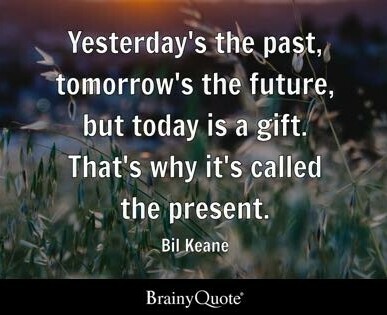The Importance Of Being Present In Yoga Philosophy
In Yoga Philosophy Living in the Present Moment is a concept that has gained significant attention in recent years, particularly in the realm of mindfulness and yoga practices.
It refers to the ability to fully engage with the present experience, without being consumed by thoughts of the past or future.
In essence, it is about being fully present in the here and now, embracing each moment as it unfolds. This concept holds great importance in Yoga Philosophy, where it is seen as a key element in achieving a state of union between the mind, body, and spirit.
Key Takeaways
- Living in the Present Moment is a key concept in Yoga Philosophy.
- Being Present In Yoga Practice can improve mental health and enhance relationships.
- Mindfulness Techniques and focusing on breath can help overcome distractions and stay present.
- Letting go of the past and future is important for living in the present moment.
- Embracing the power of living in the present moment can enhance daily life.
The Present Moment in Yoga Philosophy

To truly understand the roots of Living in the Present Moment, we must delve into the historical background of Yoga Philosophy. Yoga originated thousands of years ago in ancient India and has since evolved into a holistic practice that encompasses physical postures, breath control, meditation, and ethical principles.
Central to this Philosophy is the concept of mindfulness, which involves cultivating an awareness of one’s thoughts, emotions, and sensations without judgment or attachment.
The Benefits of Being Present in Yoga Practice

The practice of Living in the Present Moment offers numerous benefits for individuals who engage in the practice of Yoga.
Firstly, it improves physical health by promoting better body awareness and alignment during Asanas (Yoga postures). By being fully present in each movement, practitioners can prevent injuries and optimize their physical performance.
Additionally, Living in the Present Moment enhances mental clarity by quieting the mind and reducing mental chatter. This increased focus allows individuals to fully immerse themselves in their practice and experience a deeper connection with their bodies.
How Living in the Present Moment Can Improve Your Mental Health
(Table)
In addition to its physical benefits, Living in the Present Moment has a profound impact on mental health.
One of the primary ways it does this is by reducing Stress and Anxiety.
When we are fully present, we are not consumed by worries about the future or regrets about the past. Instead, we are able to focus on the present moment, which can help alleviate feelings that overwhelm us and promote a sense of calm.
Moreover, Living in the Present Moment improves mood and emotional regulation. By being aware of our thoughts and emotions as they arise, we can respond to them in a more balanced and compassionate manner, leading to greater overall well-being.
Mindfulness Techniques for Living in the Present Moment
There are various Mindfulness Techniques that can help individuals cultivate the practice of living in the present moment. One such technique is Body Scan Meditation, where one systematically brings attention to different parts of the body, noticing any sensations or tensions that arise.
This practice helps to anchor the mind in the present moment and develop a deeper connection with the physical body.
Another technique is Breath Awareness, where one focuses on the sensation of the breath as it enters and leaves the body. This simple yet powerful practice helps to cultivate a sense of calm and presence.
Lastly, Mindful Movement (Proprioception) involves bringing awareness to each movement and sensation during Yoga or any other physical activity. By fully engaging with the body’s movements, individuals can experience a greater sense of embodiment and presence.
Overcoming Distractions and Staying Focused on the Present Moment
Living in the Present Moment can be challenging in a world filled with distractions. Identifying common distractions is an important step in staying focused.
These distractions can range from external factors such as technology and noise, to internal factors such as racing thoughts or worries.
Once identified, strategies can be implemented to minimize their impact.
One effective strategy is setting aside dedicated time for mindfulness practice, free from distractions.
Creating a quiet and peaceful environment can also help minimize external distractions.
Additionally, developing a regular meditation practice can strengthen one’s ability to stay focused on the present moment.
The Role of Breathing Exercises in Living in the Present Moment
The breath plays a crucial role in Living in the Present Moment. It serves as an anchor, bringing our attention back to the present whenever the mind wanders.
The connection between breath and mindfulness is profound.
By focusing on the breath, we can cultivate a sense of calm and presence. Techniques such as deep belly breathing or counting the breaths can be used to incorporate breath awareness into yoga practice.
By synchronizing movement with the breath, individuals can deepen their connection to the present moment and enhance their overall yoga experience.
The Connection Between Living in the Present Moment and Self-Awareness
Living in the Present Moment is intimately connected with self-awareness. By being fully present, we become more attuned to our thoughts, emotions, and bodily sensations.
This heightened awareness allows us to gain a deeper understanding of ourselves and our patterns of behaviour. Through Mindfulness Practices, we can observe our thoughts without judgment, identify negative thought patterns, and cultivate a greater sense of self-compassion.
This self-awareness is a powerful tool for personal growth and transformation.
Letting Go of the Past and Future

Dwelling on the past or worrying about the future can have negative effects on our well-being. Living in the Present Moment requires letting go of attachments to past experiences or future expectations.
This does not mean disregarding the past or neglecting future planning, but rather acknowledging that the only moment we truly have control over is the present one.
Strategies for letting go and staying present include;
- Practicing Acceptance of What Is,
- Cultivating Gratitude for the Present Moment, and
- Reframing Negative Thoughts into Positive Ones.
By letting go of the past and future, we can fully embrace the richness of each moment.
How Living in the Present Moment Can Enhance Your Relationships
Living in the Present Moment has profound implications for our relationships with others. When we are fully present with someone, we are able to truly listen and engage with them.
This improves communication and fosters deeper connections. Moreover, living in the present moment enhances empathy and compassion. By being fully present, we can better understand and relate to the experiences of others, leading to increased empathy and a greater capacity for compassion.
Embracing the Power of Living in the Present Moment in Your Daily Life
To summarize this all, living in the present moment is a powerful practice that can transform our lives. By embracing each moment as it unfolds, we can experience improved physical health, increased mental clarity, enhanced spiritual awareness, and improved overall well-being.
Mindfulness techniques such as body scan meditation, breath awareness, and mindful movement can help cultivate this practice.
Overcoming distractions and staying focused on the Present Moment requires identifying common distractions and implementing strategies to minimize their impact.
The breath serves as an anchor, bringing us Back to the Present whenever the mind wanders. Living in the Present Moment is intimately connected with self-awareness, as it allows us to gain a deeper understanding of ourselves.
Letting go of the Past and Future is crucial for fully embracing the present moment.
And finally, living in the Present Moment enhances our relationships by improving communication, increasing empathy and compassion, and strengthening connections.
By incorporating mindfulness into our daily lives, we can truly embrace the power of living in the present moment.
Other Important Yoga Philosophies
While Living in the Present Moment remains a fundamental aspect of Yoga Philosophy, exploring these additional principles adds depth and richness to the practice. By integrating these philosophies into daily life, practitioners can embark on a transformative journey towards holistic well-being and spiritual awakening.
The rich tapestry of Yogic Wisdom extends far beyond this singular focus. In this segment, we delve into other essential yoga philosophies that complement and enrich the practice of mindfulness.
- Ahimsa (Non-Violence):
Ahimsa is the principle of non-violence, encompassing compassion, kindness, and harmlessness towards oneself and others. In yoga, this philosophy extends beyond physical actions to include thoughts and words.
By cultivating ahimsa, practitioners learn to foster inner peace and create a harmonious environment around them.
- Satya (Truthfulness):
Satya encourages honesty and authenticity in all aspects of life. It involves being truthful not only in speech but also in thoughts and actions.
Practicing Satya enables individuals to align with their true selves, fostering a deeper connection with others and promoting inner harmony.
- Asteya (Non-Stealing):
Asteya teaches the importance of integrity and respecting the possessions, ideas, and efforts of others. Beyond material possessions, it also applies to stealing time, energy, or opportunities. By practicing asteya, individuals cultivate contentment, gratitude, and a sense of abundance in their lives.
- Brahmacharya (Moderation):
Brahmacharya traditionally refers to celibacy or moderation in sexual activity. However, in a broader sense, it encompasses moderation in all aspects of life, including food, sleep, work, and sensory indulgence.
By practicing Brahmacharya, individuals conserve vital energy (prana) and channel it towards spiritual growth and self-realization.
- Aparigraha (Non-Attachment):
Aparigraha teaches the art of letting go of attachments to material possessions, desires, and outcomes. By releasing the grip of attachment, practitioners free themselves from suffering and cultivate contentment and inner peace.
Aparigraha encourages living simply and mindfully, focusing on the present moment rather than dwelling on the past or worrying about the future.
- Svadhyaya (Self-Study):
Svadhyaya involves the study of oneself through introspection, self-reflection, and the study of sacred texts. By delving into the depths of one’s being, practitioners gain insight into their thoughts, emotions, and patterns of behaviour.
Svadhyaya facilitates self-awareness, personal growth, and the deepening of spiritual understanding.
- Ishvara Pranidhana (Surrender to the Divine):
Ishvara Pranidhana entails surrendering one’s ego and will to a higher power or divine consciousness. It involves trusting in the inherent wisdom of the universe and accepting life’s circumstances with grace and equanimity.
Through this surrender, practitioners cultivate humility, faith, and a sense of interconnectedness with all beings.
Guided Meditation For Embracing the Present
Guided Meditation serves as a powerful tool for cultivating mindfulness and deepening our connection to the Present Moment.
Through gentle guidance and focused awareness, individuals can learn to navigate the complexities of the mind and immerse themselves fully in the here and now.
Begin by finding a comfortable seated position, either on the floor or in a chair, with your spine tall and your shoulders relaxed.
Close your eyes gently, allowing yourself to settle into this moment.
Take a few deep breaths, inhaling deeply through your nose and exhaling fully through your mouth, releasing any tension or distractions from your body and mind.
Incorporate practices such as;
- Body Scan,
- Sensory Awareness,
- Breath Control and
- Mindfulness of Thoughts
As you near the end of your meditation practice, take a moment to reflect on your experience. Notice any shifts or insights that have emerged during your time of Guided Meditation.
CHECK OUT THIS VIDEO BELOW IF YOU NEED HELP
Final Word
Lastly, the essence of Living In the Present Moment, as emphasized in Yoga Philosophy, transcends mere mindfulness – it embodies a profound way of living and experiencing life.
Through cultivating presence on the Yoga Mat and in daily life, individuals tap into the transformative power of the present moment, anchoring themselves in the richness of each experience, whether joyous or challenging.
Yoga Philosophy reminds us that the present moment is all we truly have, serving as a gateway to inner peace, contentment, and self-realization. By embracing practices such as mindfulness, breath awareness, and guided meditation, we can cultivate a deeper connection to the present moment, allowing us to navigate life’s ups and downs..
As we immerse ourselves in the Present Moment, we uncover a profound sense of freedom and authenticity, liberated from the burdens of the past and anxieties about the future.
In this space of presence, we discover the true essence of our being, unbounded by egoic limitations and societal constructs.
In the grand tapestry of Yoga Philosophy, being present is not merely a practice but a way of life—a journey of self-discovery, growth, and awakening. So, let us embrace the gift of the present moment with open hearts and minds, allowing its transformative power to illuminate our path towards greater wholeness, vitality, and fulfillment.
For in the presence of now, we find the eternal essence of our being—the ever-present source of joy, love, and infinite possibility.
